Supervisors and Co-supervisors
- Home
- Supervisors and Co-supervisors
Meet UPLIFT Consortium project Supervisors, who will supervise and monitor research progress of each project at the hosting institution.
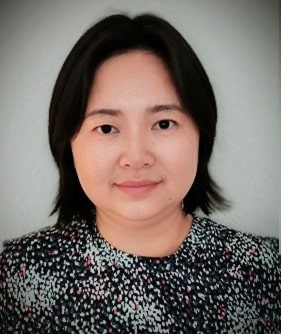
Ye Zhang
Paul Scherrer Institute
Dr. Ye Zhang is a scientist (permanent position) from the Center for Proton Therapy (CPT) at the Paul Scherrer Institute (PSI). She received her PhD from ETH Zurich (Switzerland) in 2013. Her academic journey includes a M.Sc and B.Sc and in biomedical engineering from the Royal Institute of Technology (KTH, Sweden) in 2010 and Xi’an Jiaotong University (China) in 2008. She was a research scientist at Varian Medical Systems in 2014 and later rejoined PSI as a postdoc in 2016. Her exceptional trajectory made her a tenure-track scientist in 2018, a distinction she solidified by achieving tenure in 2022. Currently, she is engaged as PI for 5 national-/EU-funded research projects. Her primary research is developing 4D and real-time adaptive treatments for scanned proton therapy, especially for treatment planning and optimisation, motion mitigation, image guidance, and motion modelling. Her curiosity extends to emerging areas like online MR-guided radiotherapy, upright treatment, and leveraging artificial intelligence for radiation therapy applications.
- Co-supervisor: Antony Lomax
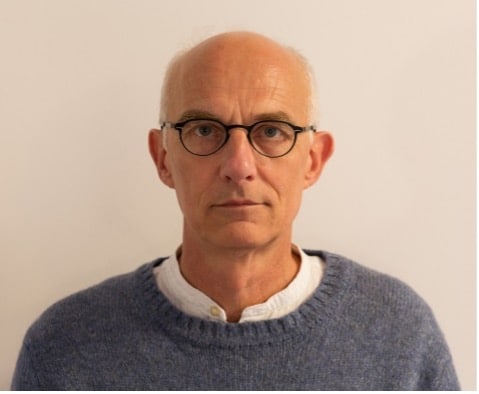
Niels Oesingmann
ASG Superconductors
The supervisor of the project at ASG is Dr. Niels Oesingmann who received his PhD from the Ruprechts-Karls-University in Heidelberg with a work on the evaluation of renal function by MR imaging conducted at the German Cancer Research Center (DKFZ). Niels Oesingmann worked as sequence and application developer at Siemens Healthcare in Germany for cardiac and body imaging, and as collaboration manager for Siemens Healthineers in the USA. Prior to joining ASG, Niels worked for UK Biobank as physicist for quality assurance and control of their 8 MR scanners throughout England. He is now responsible for application development and validation at ASG.
- Co-supervisor: Michele Piana
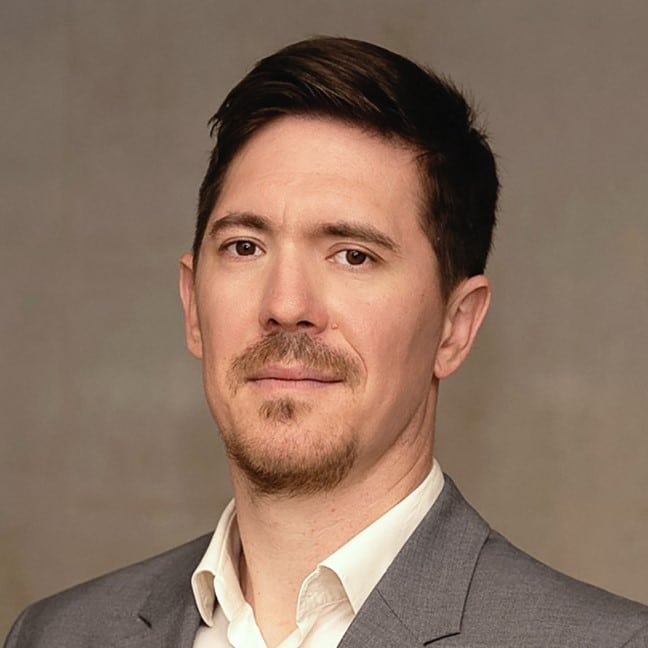
Kristjan Anderle
Cosylab
Dr. K. Anderle, Chief Science Officer, will be the main supervisor of DC 8 and will contribute to the training programme. Dr. Kristjan Anderle completed his PhD at GSI (Darmstadt, Germany), where he continued his research as a postdoctoral fellow. He studied the effects of moving targets in particle therapy and the corresponding methods to mitigate them. He has a strong background in particle therapy and several years of experience in industrial research and development. Among other contributions, he has advanced knowledge in areas such as particle therapy applications, treatment plan optimization, image registration, and calibration. He is also actively involved in the management and dissemination of the ITN RAPTOR and MSCA UPLIFT projects.
- Co-supervisor: Andrej Studen
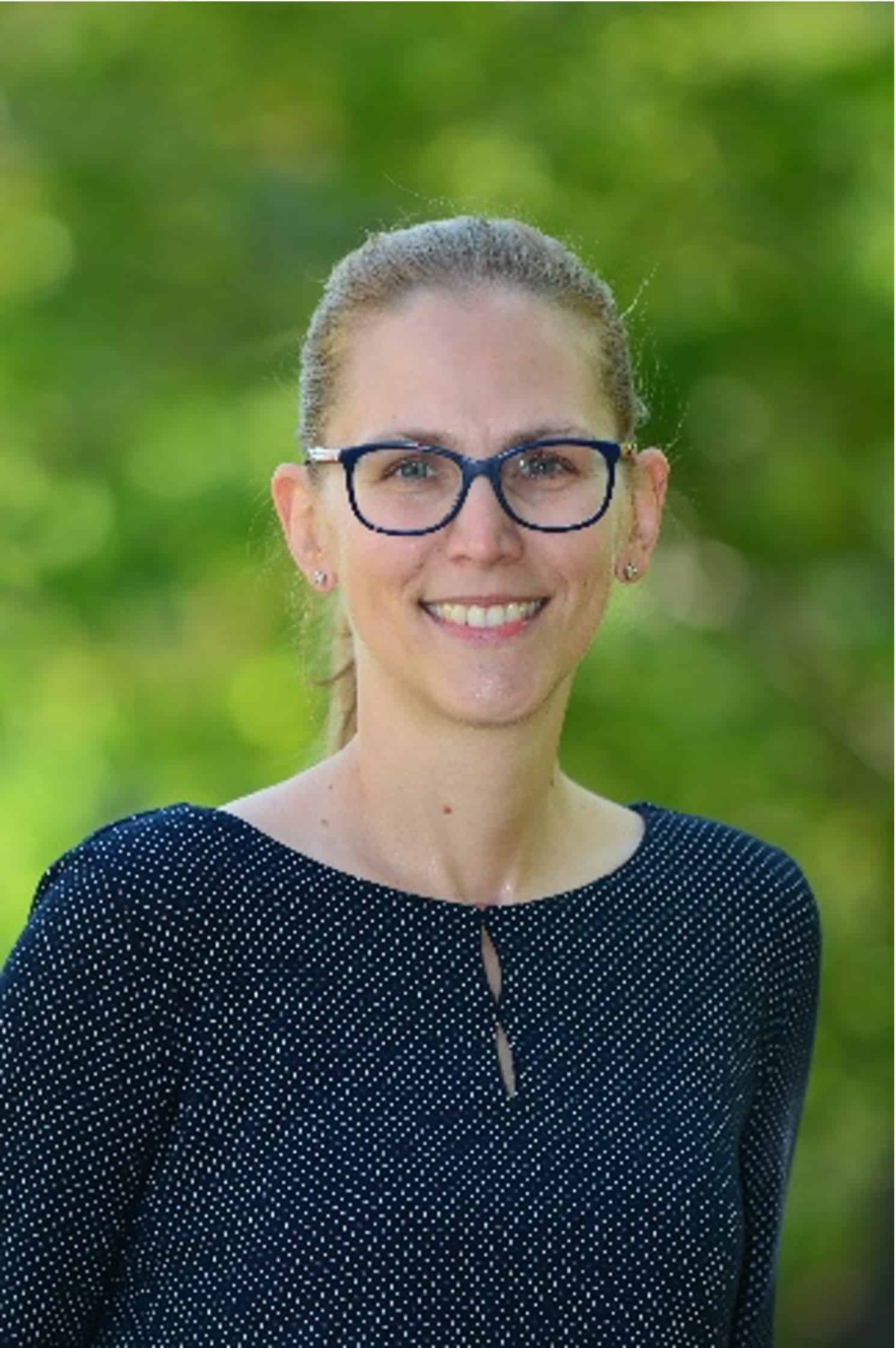
Petra Trnkova
České vysoké učení technické v Praze
Petra Trnková leads a research group of medical physics at the Faculty of Nuclear Sciences and Physical Engineering. She received her PhD degree at Medical University of Vienna. Afterwards, she worked at several renowned institutes: Paul Scherrer Institute (Villigen, Switzerland), Francis H. Burr Proton therapy centre (Boston, USA) and HollandPTC / Rotterdam MC (Delft / Rotterdam, the Netherlands) and Medical University of Vienna (Vienna, Austria), being involved in both clinical environment and interdisciplinary research. Her focus is on translational research in radiation oncology, specifically adaptive proton and photon radiotherapy, image guidance, automation, ocular proton therapy and upright treatment. She is an active member of European Particle Therapy Network, PTCOG Ocular Subcommittee and Upright Consortium.
- Co-supervisor: Dietmar Georg
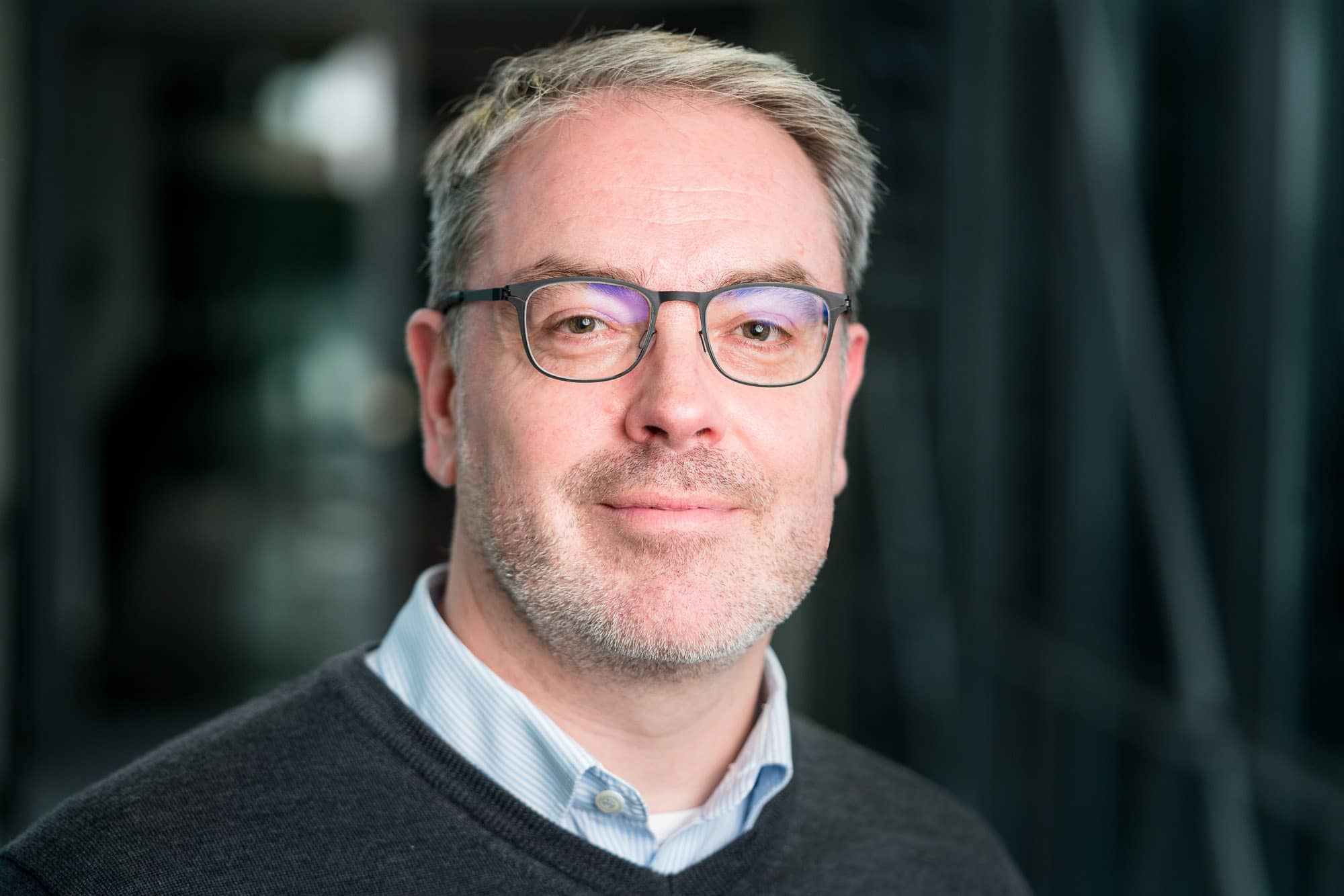
Aswin Hoffmann
Helmholtz-Zentrum Dresden-Rossendor
Aswin Hoffmann obtained his MSc degree in Electrical Engineering from the Eindhoven University of Technology in The Netherlands (NL) in 1996. He has more than 20 years experience as a Certified Medical Physics Expert in the field of Radiation Oncology. He obtained his PhD degree from the Radboud University in Nijmegen (NL) in 2013 on treatment planning optimisation methods for individualised dose prescription in intensity-modulated radiotherapy. In 2015, he moved to Dresden (Germany) to found and head the Experimental MR-integrated Proton Therapy at OncoRay – National Center for Radiation Research in Oncology, jointly operated by the Helmholtz-Zentrum Dresden-Rossendorf (HZDR), the Faculty of Medicine at the Technical University Dresden, and the University Hospital Carl Gustav Carus Dresden. Since, he has been pioneering the development of MR-integrated proton therapy. In 2021, he was appointed adjunct professor at the Faculty of Medicine at the Technical University Dresden.
- Co-supervisor: Bradley Oborn
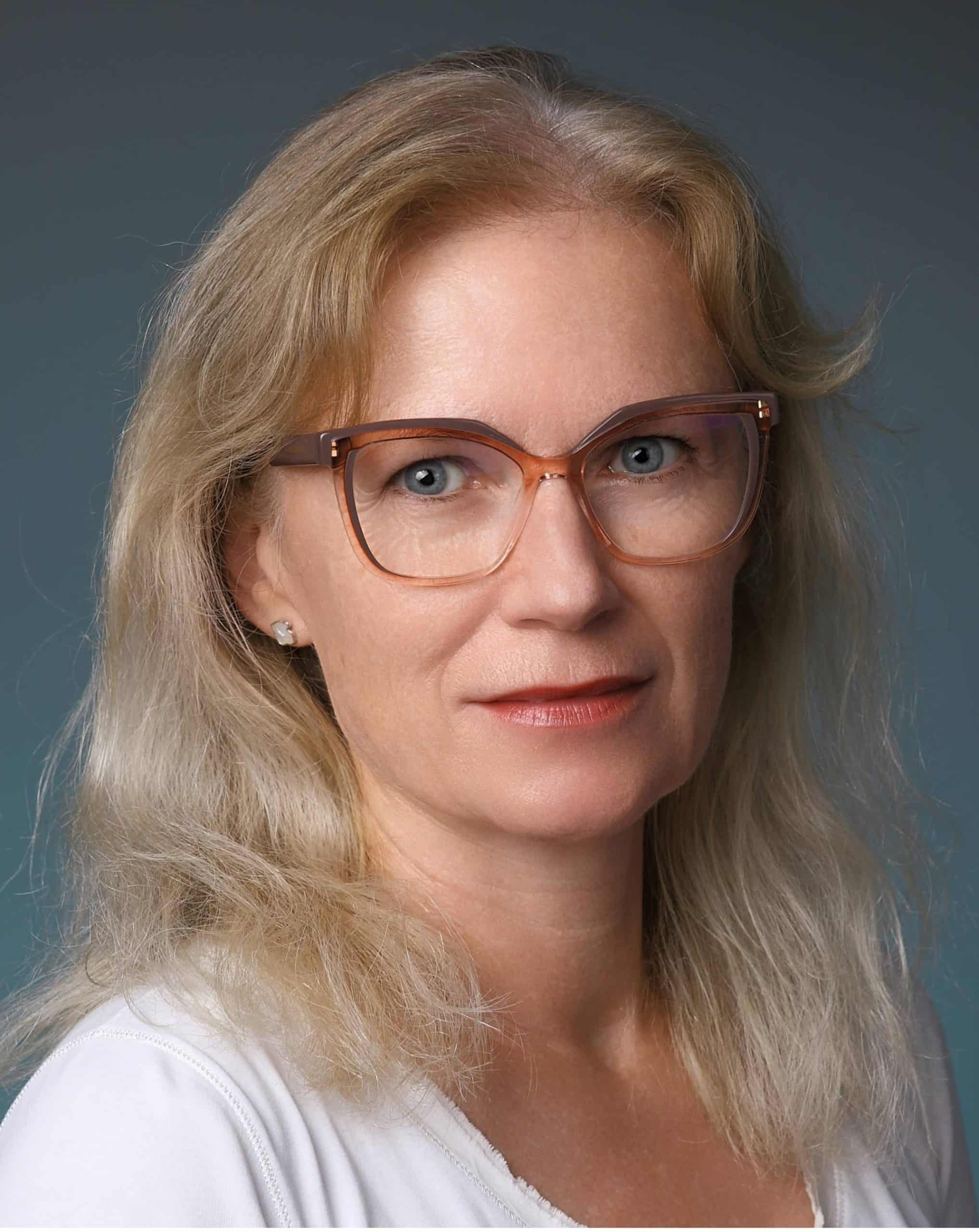
Ewa Stepień
Uniwersytet Jagielloński
Ewa Stępień is a professor of medicine and medical physics at the Institute of Physics. Marian Smoluchowski at the Jagiellonian University. After receiving her MA and PhD in molecular and cell biology at the Jagiellonian University, she devoted the first 15 years of her career to the practice of laboratory medicine and the development of a number of molecular methods for the detection of hepatitis viruses and the application of new biomarkers of cardiovascular diseases, diabetes and kidney failure. She is now pioneering development of application of positronium atoms as indicators of early tissue alterations at the intra-molecular level. As the author of more than 130 research papers and 4 patents, she is one of the pioneers who recognized extracellular vesicles (EVs), i.e. exosomes and microvesicles, as a suitable resource for biomarker discovery and drug delivery system design. Her work lies at the intersection of data analysis, clinical science, and molecular biology methods. Prof. Ewa Stępień helped as a supervisor for 7 defended PhD theses (4 in progress), was the PI for the three national grants (OPUS) , and funded the Theranoscope spin-off. She is a medical coordinator in the J-PET group for application cost-effective medical imaging.
- Co-supervisor: Pawel Moskal
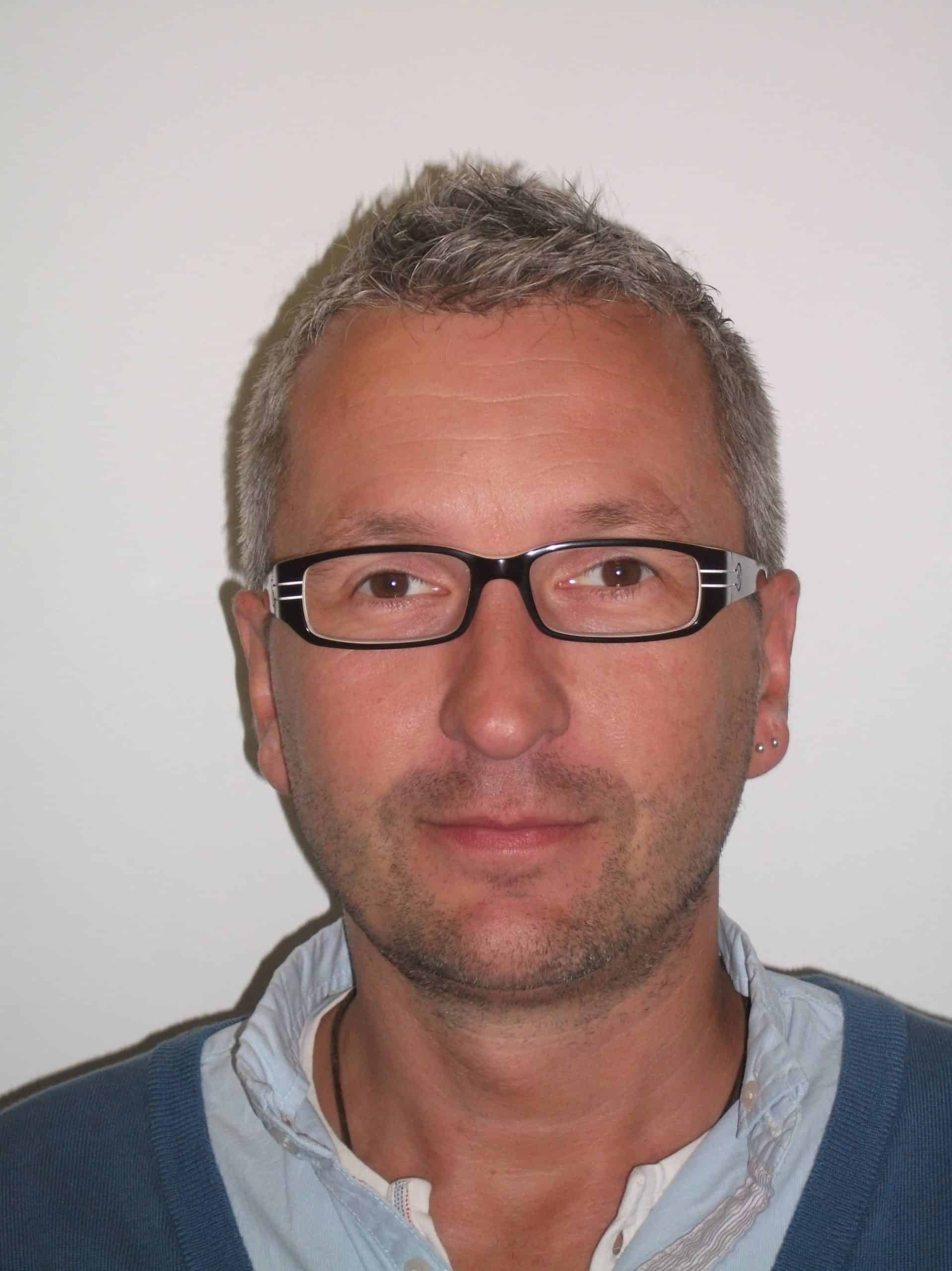
Armin Runz
Deutsches Krebsforschungszentrum Heidelberg
Armin Runz trained as a chemical laboratory technician in the DKFZ radiochemistry department, completing his studies in 1991 and was responsible for the production and development of radionuclides and radiopharmaceuticals. In 2001, he received recognition as a chemical engineer (FH Mannheim). In 2008 he switched to medical engineering, where he worked on the development of medical devices for applications in radiotherapy and established the 3D printing workflow in the department. He continued his professional training through further courses such as “Medical Physics for Physicists” and student supervision. In April 2023, he became the manager of the medical engineering working group in the Department of Medical Physics in Radiation Therapy at DKFZ. He tackles a range of interdisciplinary and diverse tasks (mechanical engineering, medical engineering, product design, molecular biotechnology, medical physics). His core value as a supervisor is to act as a team and work together to find the best solutions.
- Co-supervisor: Oliver Jäkel
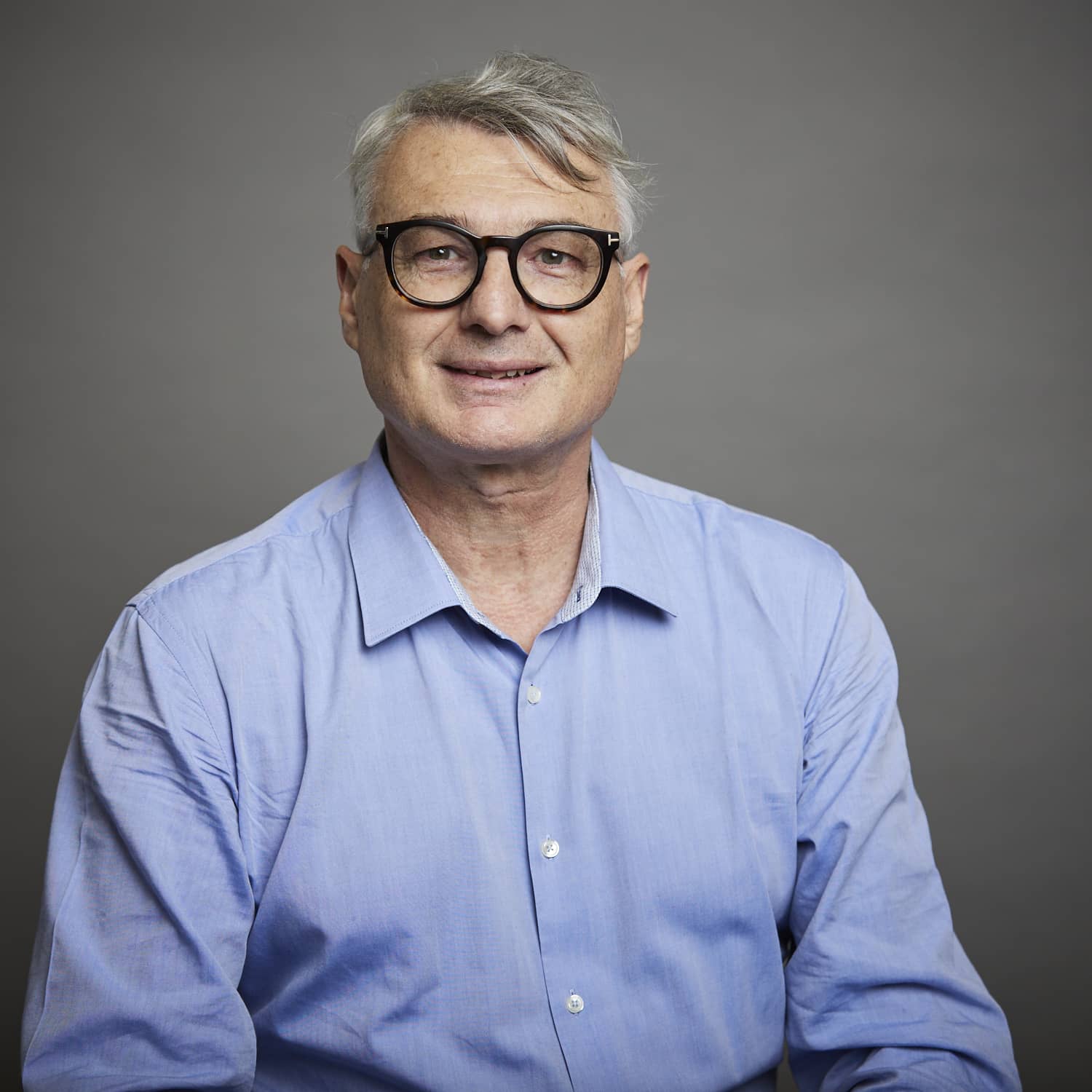
Lionel Perrier
Centre de Lutte Contre Le Cancer Leon Berard
Lionel Perrier received the Ph.D. degree in economics and the Habilitation à Diriger des Recherches degree from the University of Lyon, Lyon, France, in 2002 and 2010, respectively. He is currently responsible for the innovations and strategies unit in the Clinical Research Direction of the Léon Bérard Cancer Centre, Lyon. He is also with the GATE UMR 5824, University of Lyon, and the Ethics Focus Group, Léon Bérard Cancer Centre. He was a member of the Economic and Public Health Evaluation Committee (CEESP), French National Authority for Health (HAS), from 2015 to 2024. As a scientific coordinator, a work package leader or scientist, he is in charge of the health economist part of numerous projects and solicited for teaching in this field amongst other in Emlyon Lyon Business School and École Centrale de Lyon.
- Co-supervisor: Vincent Gregoire
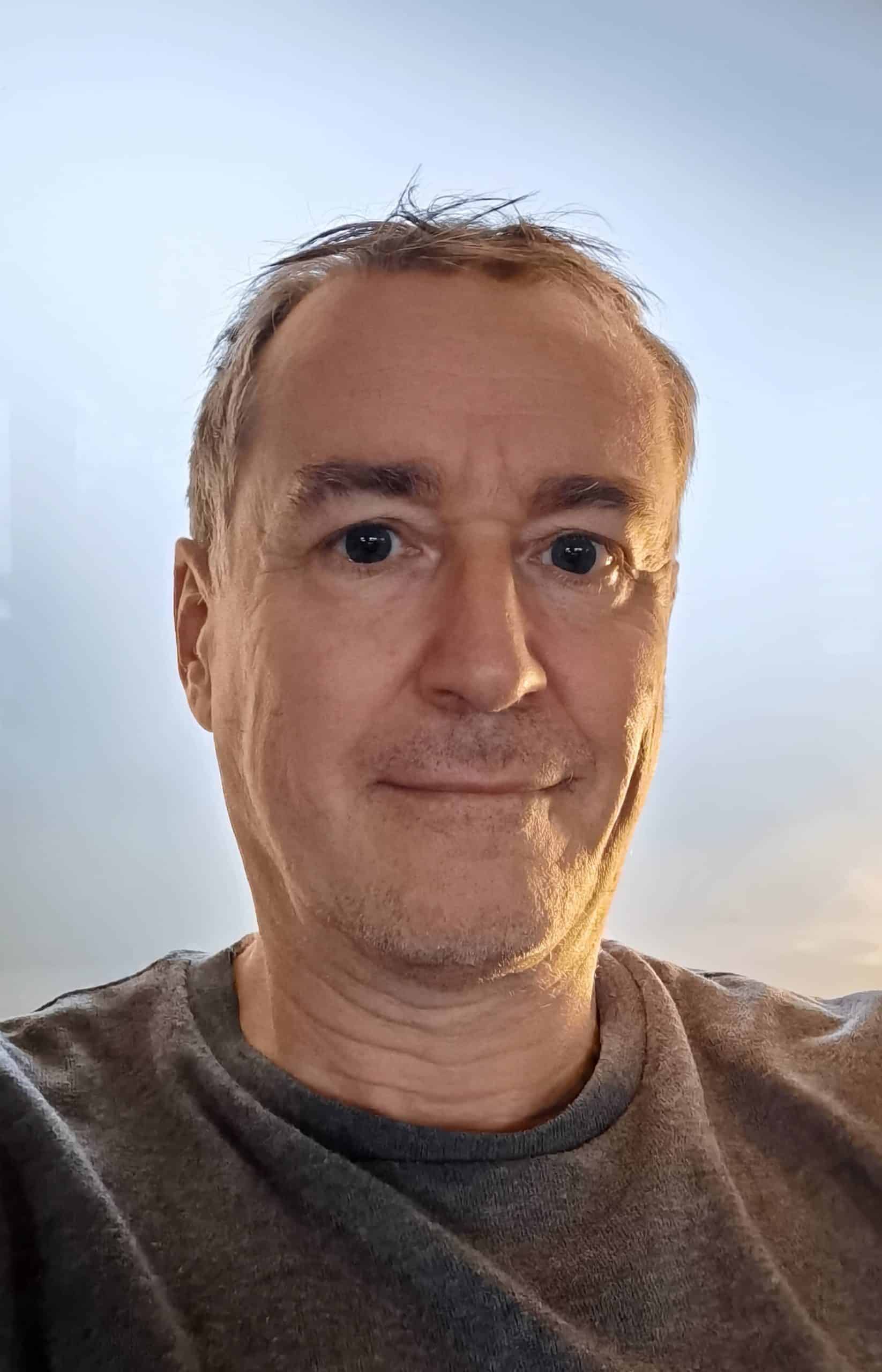
Antony Lomax
Paul Scherrer Institute
Tony Lomax obtained his bachelor degree at Brighton Polytechnic, followed by an MSc and PhD in Medical Physics from the University of Aberdeen. He subsequently worked for 2 years as a medical physicist in the National Health Service, before moving to Switzerland in 1992 to work in the Center for Proton Therapy at the Paul Scherrer Institute. In 2001 he became head of the Medical Physics group for the proton therapy project there. His main research interests lie in the development of intensity modulated proton therapy, problems of robustness and uncertainty in treatment delivery and adaptive proton therapy. Since April 2005, he has been a faculty member of the Physics Department at ETH (Swiss Federal Institute of Technology), Zurich and is currently joint director of the Master of Advanced Studies in Medical Physics and the medical physics track of the Bio-Medical Engineering Master’s program at the same institute. In 2007 he was made Titular Professor in the Physics Department at ETH. From 2010-2014, he was on the editorial board of ‘Physics in Medicine and Biology’ and remains on the international advisory board. He is a regular member of the scientific committees for ASTRO, ESTRO, AAPM and the ICCR and from 2015 – 2023 was the physics co-chair of the PTCOG Scientific Program Sub-committee. In 2023 he became an honorary member of the Swiss Association of Scientific Radiation Oncology (SASRIO) and in 2024 was the recipient of the Robert Wilson Award for his achievements in particle therapy from the Particle Therapy Cooperative Group (PTCOG). He is the author or co-author of over 300 peer reviewed papers, 13 book chapters and more than 500 invited and proffered conference presentations.
- Co-supervisor: Ye Zhang
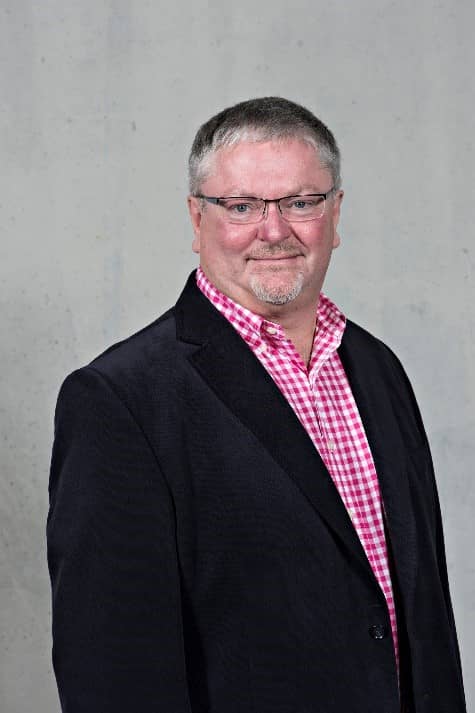
Michael Fray
Loughborough University
Dr Mike Fray is Professor of Ergonomics and Assisted Performance. He has a long-standing career in the design and evaluation of products that assist human activity in occupational and medical situations. He has significant expertise in the technology that supports patient movement, positioning and the surrounding studies of physical and thermal comfort. His research is focussed on the measurement and quantification of human posture, position and the corresponding level of human effort. This project will be supported by our world leading laboratory and measurement experience to ensure we can adequately measure the accuracy, and repeatability for the upright therapy delivery.
- Co-supervisor: Tracy Underwood
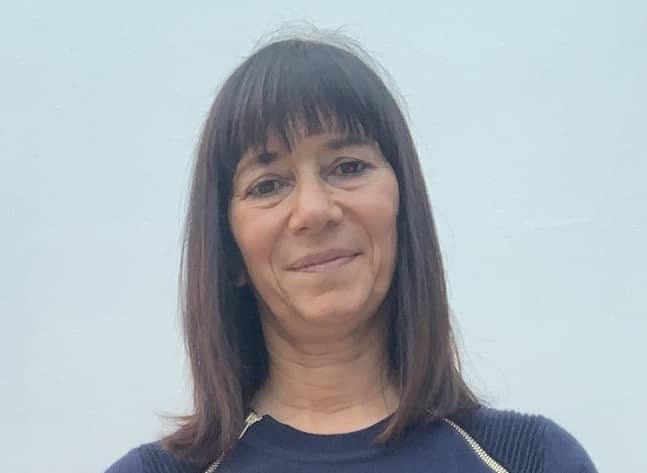
Heidi Probst
Sheffield Hallam University
Heidi qualified as a Therapeutic Radiographer (1987) from the London Hospital, Whitechapel (UK), and worked for the NHS for 14 years where her specialist area was pre-treatment imaging. Heidi started her PhD while a clinical radiographer in Leeds, and was awarded a fellowship from the Department of Health, gaining her PhD in 2002. Heidi joined Sheffield Hallam University in 2001, was appointed Reader in Radiotherapy (2013) and Professor of Radiotherapy and Oncology (2015) and awarded a Fellowship from the College of Radiographers in the same year. Heidi is the founder and chair of the Breast Radiotherapy Interest Group (BRIG), a professional group for Therapeutic Radiographers, Physicists and dosimetrists specialising in radiotherapy for breast cancer. From 2020-2023 Heidi was Director of the Health Research Institute at Hallam and in 2023 Heidi was awarded an honorary fellowship from the Institute of Physics and Engineering in Medicine. Heidi was awarded an MBE in the 2024 Kings New Year honours list for services to Radiography. Current research projects include three radiotherapy breast cancer studies: the SuPPORT 4 All (S4A) study, the Calibrate study and the Respire+ project.
- Co-supervisor: Tracy Underwood
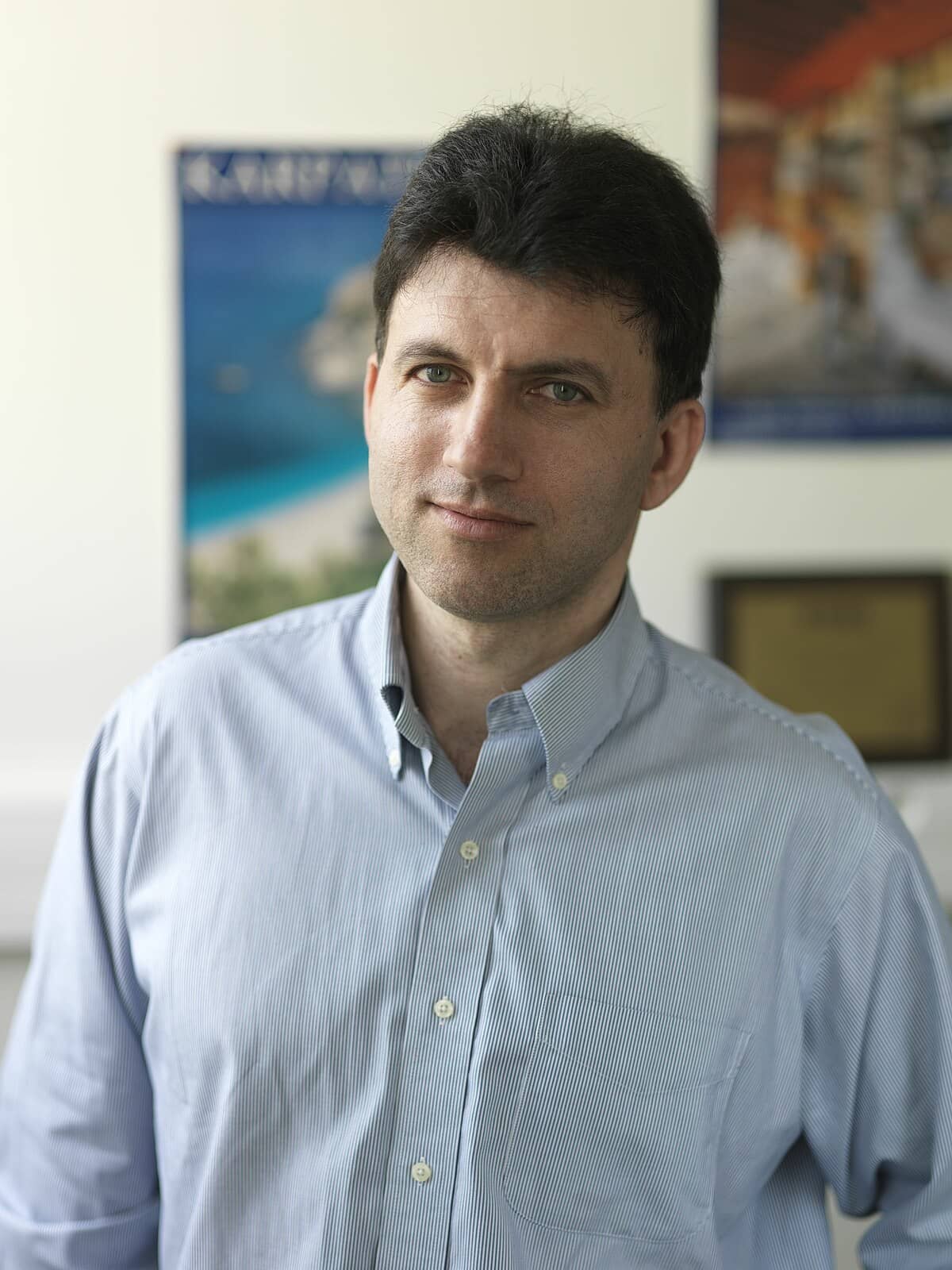
Nikos Paragios
TheraPanacea
Nikos Paragios is a distinguished professor of Applied mathematics at CentraleSupélec, the school of engineering of the Paris-Saclay and founder, president and chief executive officer of TheraPanacea. Prior to that, he was senior fellow at the Institut Universitaire de France and affiliated scientific leader at Inria (2007-2017), served as the editor in chief of the Computer Vision and Image Understanding Journal (2012-2022) of Elsevier Publishing House, and has held permanent positions at Siemens Corporate Technology, École des ponts ParisTech as well as visiting positions at Rutgers University, Yale University and University of Houston. He holds a D.Sc. degree in electrical and computer engineering (2005) from Université Côte d’Azur, a PhD in electrical and computer engineering (2000) from Inria and the University of Nice Sophia Antipolis. Between 2011 and 2016 he was a fellow of the ERC. He targets precision medicine in oncology, neurology and beyond through holistic treatment pathways optimization.
- Co-supervisor: Maria Vakalopoulou
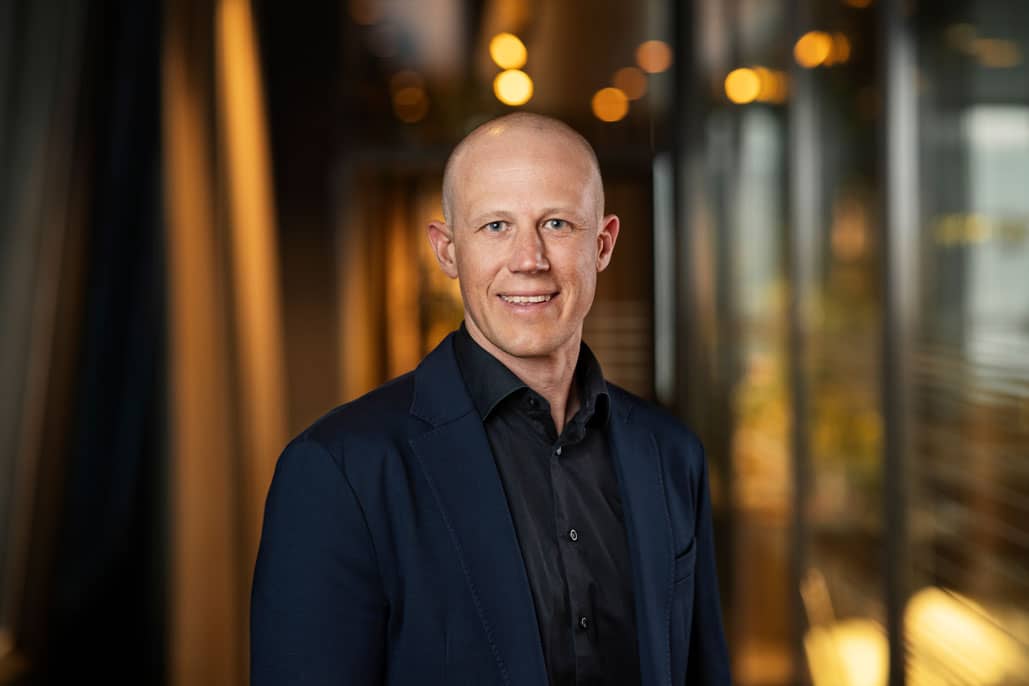
Erik Engwall
RaySearch Laboratories
Erik Engwall holds the role as Chief Physicist at RaySearch Laboratories with the overall responsibility of the physics functionalities across all modalities in the treatment planning system RayStation. Together with Lars Glimelius, he manages the Physics group of 22 physicists and software developers. Main focus areas within research and development currently lie within proton treatments, automation of the treatment planning process, brachytherapy planning, FLASH treatments with protons and electrons, and robustness of treatment plans. The past years, he has led the research within proton arc treatments – an emerging technique that is especially suited for upright patient positioning. His scientific background is in space physics. Prior to joining RaySearch in 2011, he also worked for four years within different software projects and product management roles at Scania.
- Co-supervisors: Lars Glimelius, Rasmus Bokrantz
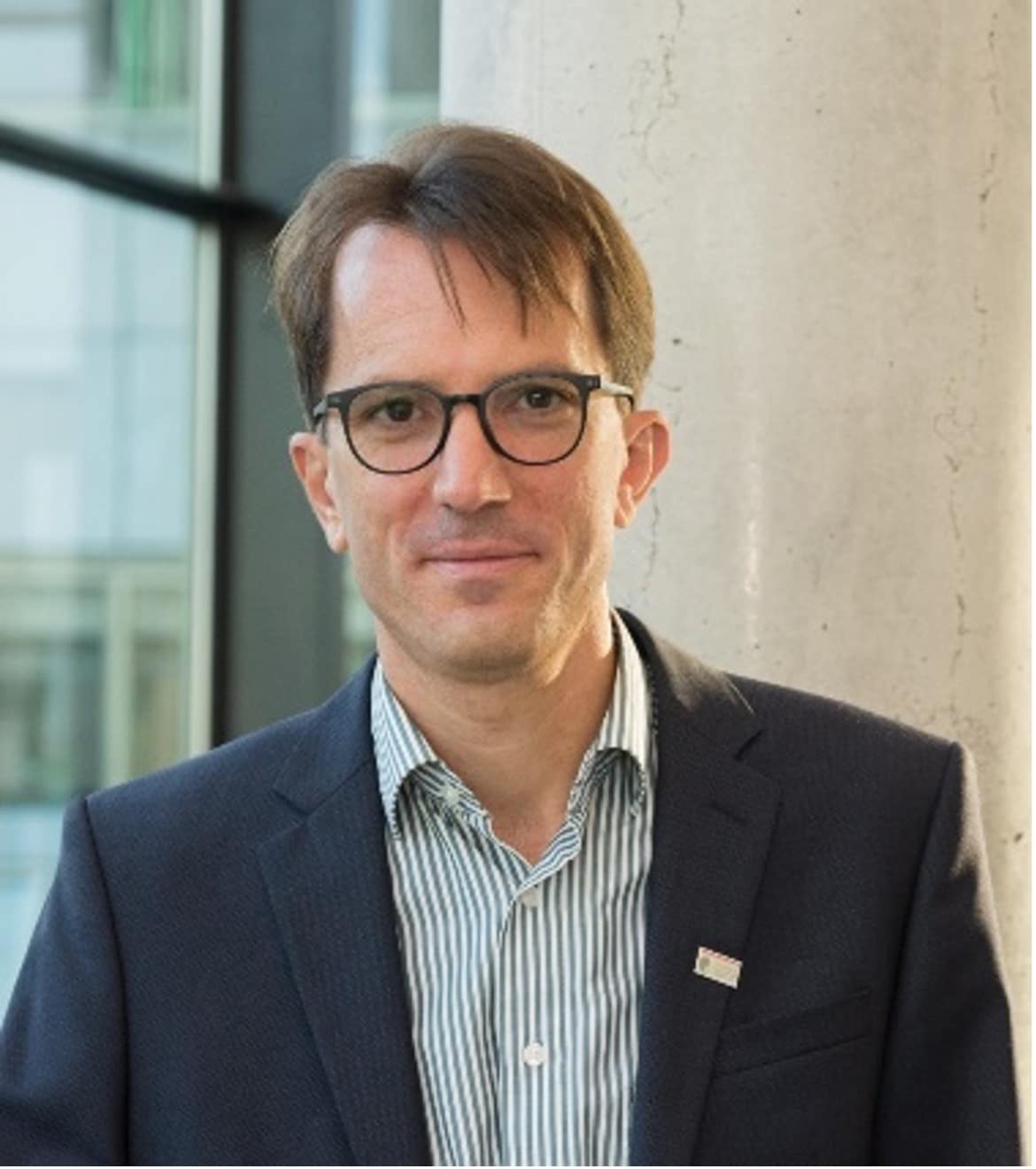
Christian Graeff
GSI Helmholtzzentrum für Schwerionenforschung
Christian Graeff studied Biomedical Engineering at Hamburg University of Technology and received his PhD in 2010 at the University Clinic Kiel and the Hamburg University of Technology. Since 2011, he works at GSI, Darmstadt, Germany, where he leads the Medical Physics Group and is Deputy Scientific Director of the Biophysics Department. Since 2021, he is Professor for Technology in Radiotherapy at the Technical University Darmstadt. Dr. Graeff works on novel planning and delivery strategies for precision particle therapy. He is responsible for GSI’s treatment planning system TRiP98 as well as the former therapy room ‘Cave M’, which offers a fully equipped raster scanning system for different ion species. The focus lies on ambitious high risk-high gain research such as conformal motion mitigation strategies, particle arc, upright therapy, and image guidance with mixed ion beams. He is the PI of the ERC Consolidator Grant PROMISE, as well as the UPLIFT project.
- Co-supervisor: Marco Durante
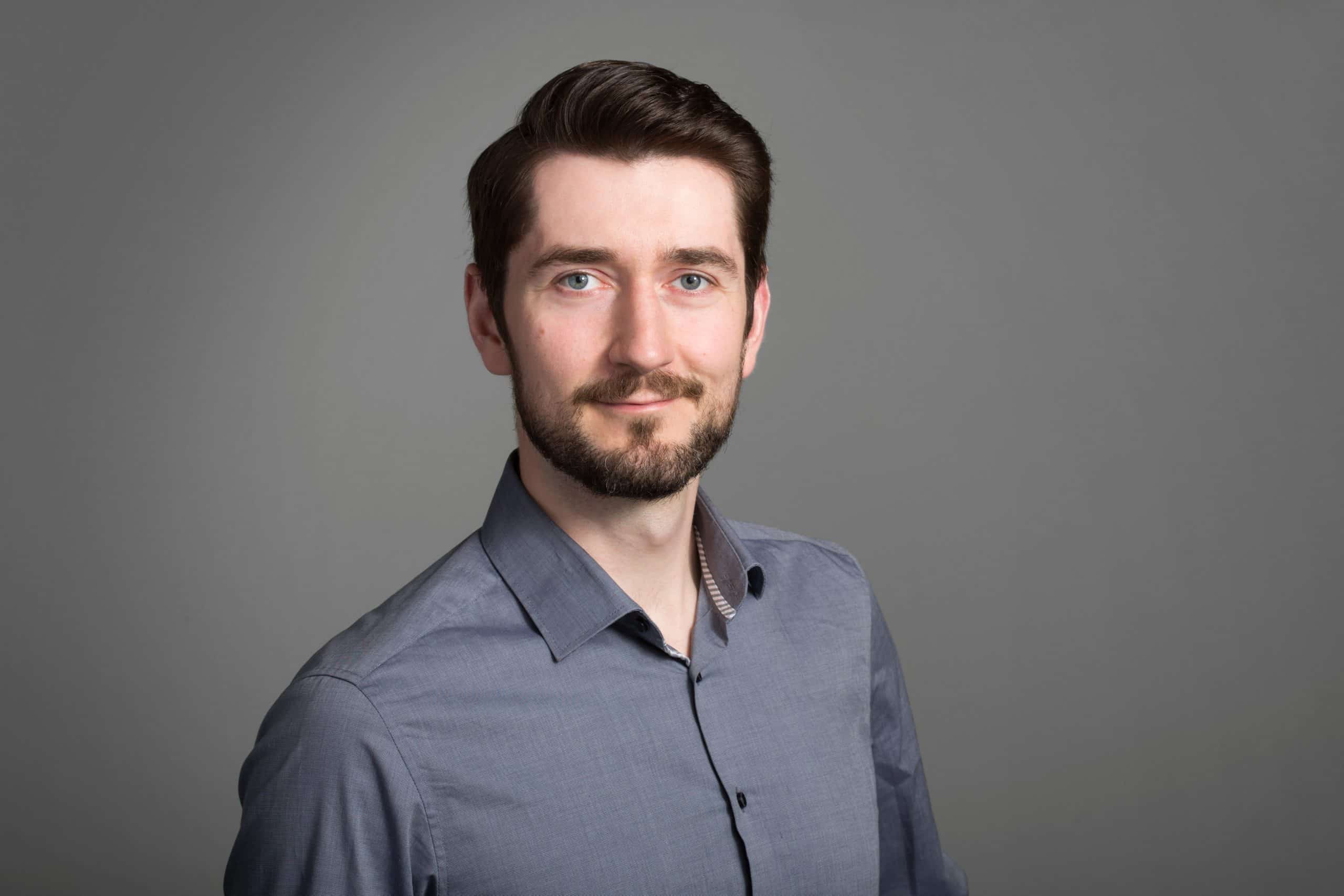
Lennart Volz
GSI Helmholtzzentrum für Schwerionenforschung
Lennart Volz holds a PhD in physics, which he obtained in 2020 from Heidelberg University. His thesis project was on the development and use of helium ions for medical imaging, as well as mixed beam portal range monitoring. Since 2021 he works at GSI Helmholtz Centre for Heavy Ion Research GmbH within the Medical Physics group, for which he became deputy group leader in 2024. His research focuses on advanced ion beam therapy concepts that improve treatment accuracy and increase cost-efficiency, particularly particle arc therapy, particle imaging, and upright patient positioning. He is co-PI of the UPLIFT project, serves as co-chair to the upright radiotherapy research consortium, and is co-chair to the Particle Therapy Co-Operative Group AI subcommittee. His research has received multiple awards, such as the Otto Haxel award for physics, and the Wilhelm and Else Heraeus Award for the best experimental physics thesis at Heidelberg University in 2020.
- Co-supervisor: Marco Durante
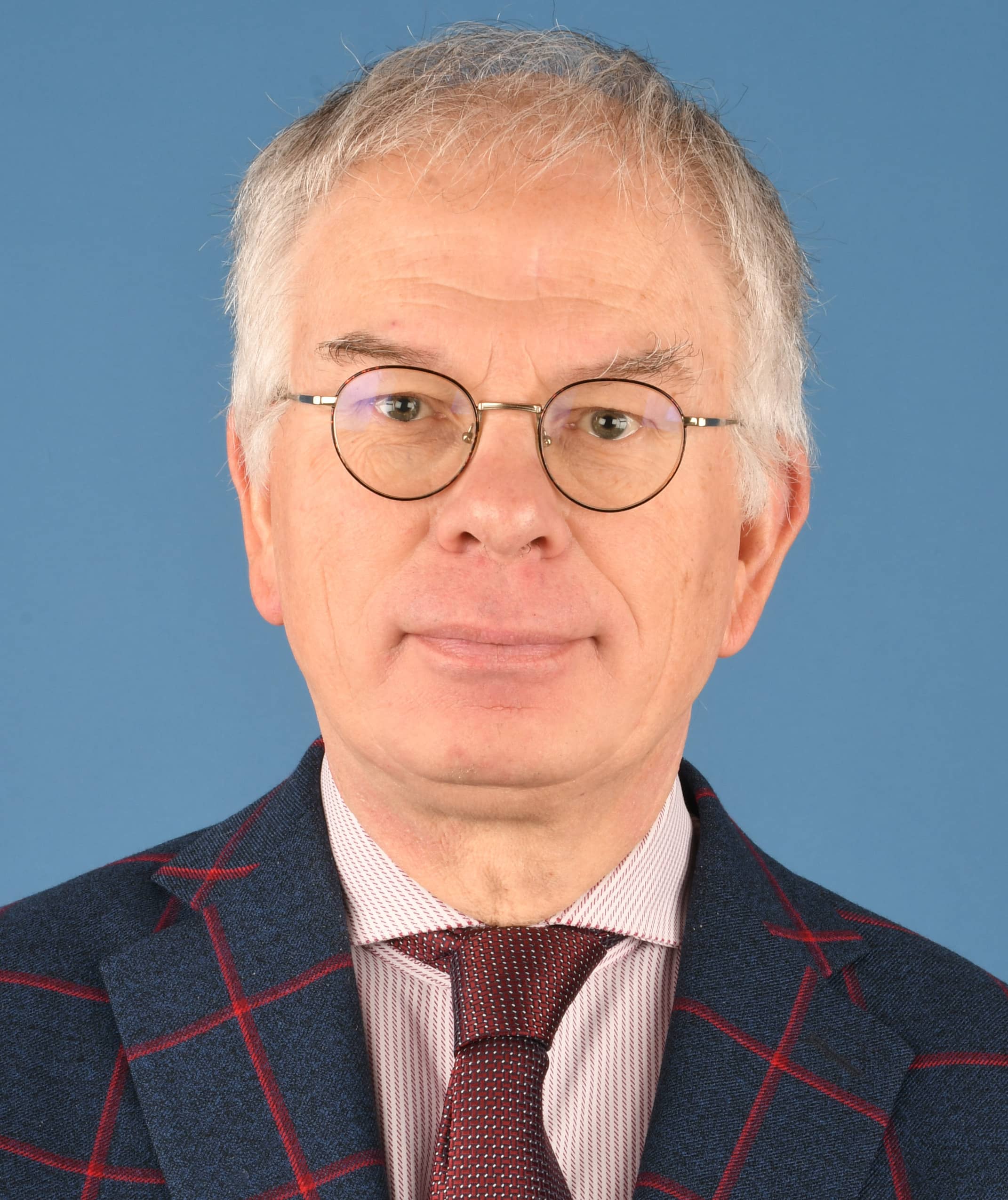
Vincent Gregoire
Centre de Lutte Contre Le Cancer Leon Berard
Prof. Vincent GREGOIRE graduated as a Medical Doctor (MD) in 1987 from the Université Catholique de Louvain in Belgium. He was board certified in Radiation Oncology in Belgium in 1994 and obtained his PhD in Radiation Biology in 1996 after a fellowship at the Netherlands Cancer Institute in Amsterdam (The Netherlands) and at MD Anderson Cancer Center in Houston (USA). Since his return from the USA, Prof. GREGOIRE was appointed at the Academic Hospital of the Catholic University of Louvain in Brussels (Belgium) where he was the Director of the Center for Molecular Imaging, Oncology and Radiotherapy, Full Professor in Radiation Oncology, and Head of Clinic in the Department of Radiation Oncology. From May 1st 2018, Prof. Vincent GREGOIRE is the Head of the Radiation Oncology Dept. at the Léon Bérard Cancer Center in Lyon (France). He coordinates the Head and Neck Radiation Oncology program where the publication of the consensus guidelines for selection and delineation of target volumes brought him worldwide recognition.
- Co-supervisor: Lionel Perrier
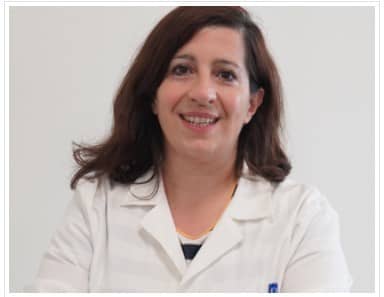
Ester Orlandi
Centro Nazionale di Adroterapia Oncologica
Dr Ester Orlandi has more than 20 years’ experience in radiation oncology in Head&Neck cancer. She currently is type-B Researcher at the University of Pavia and holds the position as Chief of the Clinical Department at CNAO. She focuses on managing rare tumors, particularly in H&N, and is skilled in advanced radiotherapy techniques, side effects modelling, and personalized therapy. She investigates new combinations of beam qualities and drugs to improve cancer treatment effectiveness. Since 2019 she is Councilor of the Italian Association of Head and Neck Oncology (AIOCC). Since 2020, she has been a representative of the EORTC H&N group for the Radiation Oncology Scientific Council (ROSC). Since 2021 she has been ESMO faculty member for the Head and Neck Cancer group and since 2022 Scientific Committee member for ESMO 2024. She has been appointed as the senior scientific advisor at Shanghai Proton and Heavy Ion Center. She is author/coauthor of 7 book chapters and 229 scientific journal articles.
- Co-supervisor: Mario Ciocca
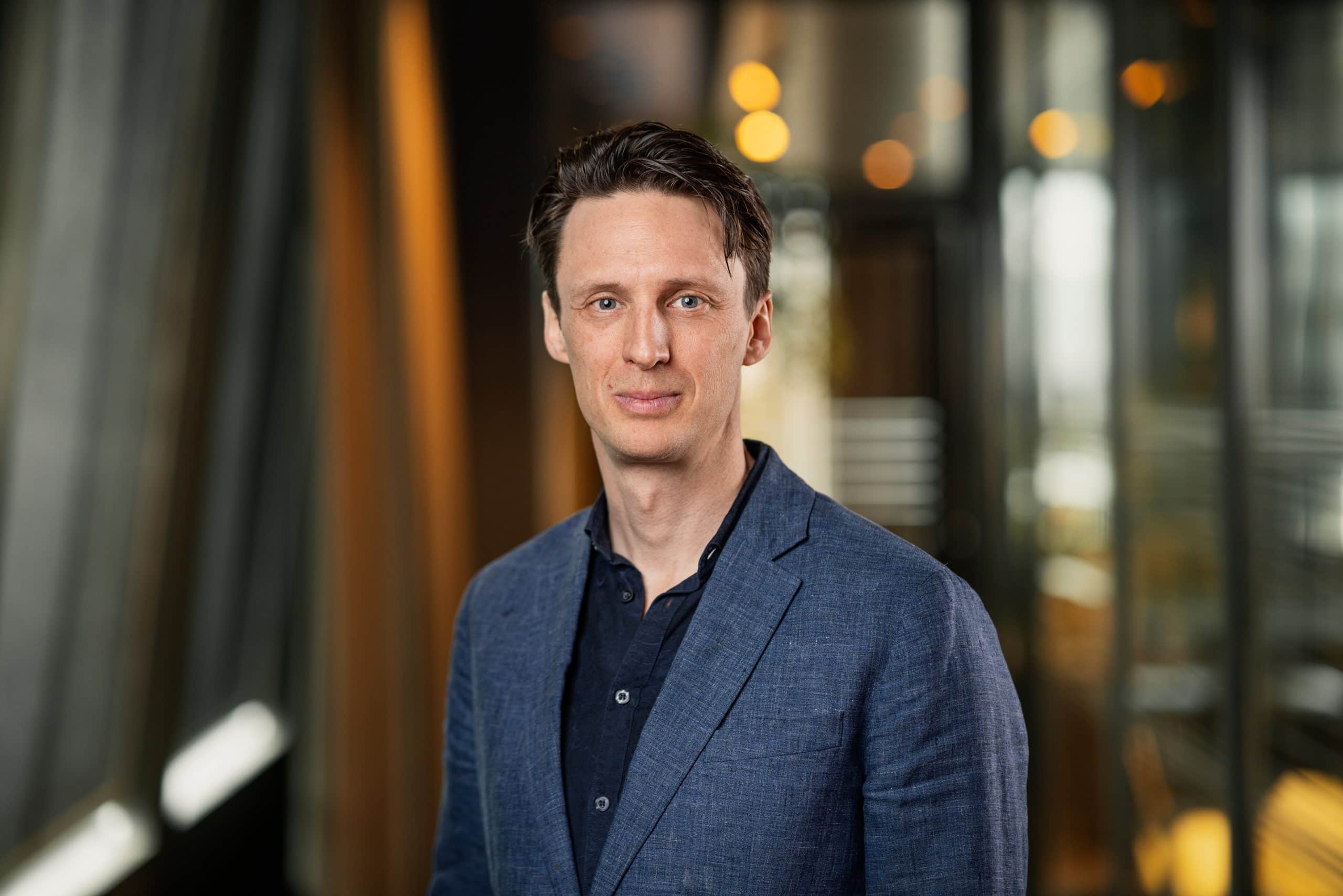
Lars Glimelius
RaySearch Laboratories
Lars Glimelius has three main roles at RaySearch Laboratories: manager of the Physics group, together with Erik Engwall, product manager for light ions, as well as team lead of the Carbon team. In addition to dose computation and optimization of ion plans, the Carbon team works with online adaptive, automated ML planning and many other areas. For research, his main interest lies in ion planning (including multi-ions), RBE modelling and LET optimization, but he has also worked with, e.g., co-optimization and machine learning. Within UPLIFT a particular goal is to provide a way to create robust multi-ion arc plans. His background is in engineering physics, where the thesis project was performed at Elekta working with the Gamma knife. After graduation he joined RaySearch and pioneered together with two other physicists proton planning in RayStation. Since then, he has worked with most modalities and techniques.
- Co-supervisors: Rasmus Bokrantz, Erik Engwall
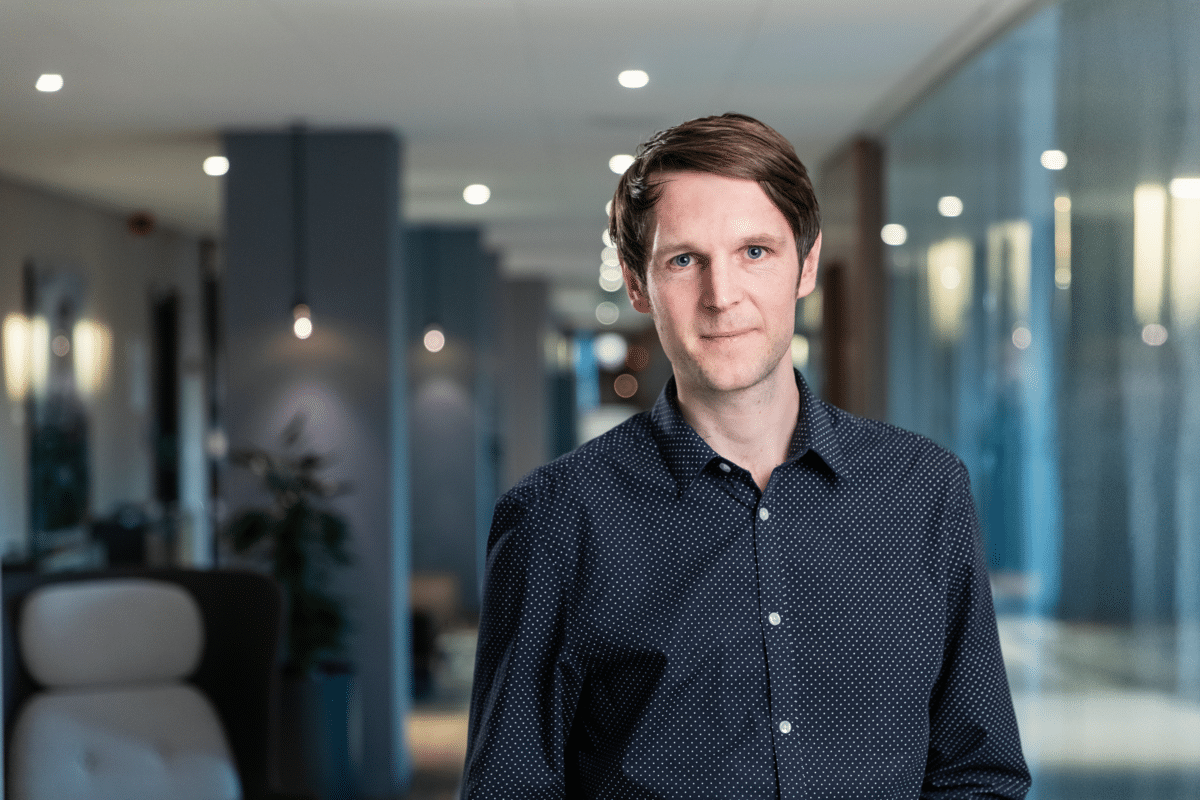
Rasmus Bokrantz
RaySearch Laboratories
At RaySearch Laboratories, Rasmus Bokrantz manages a group of ten algorithm developers that work in areas such as optimization, performance, and treatment planning for external beam photon therapy and brachytherapy. His primary focus is design and implementation of algorithms for treatment plan generation in RayStation. Functionalities that he has contributed to include optimization for treatment techniques such as VMAT, DMLC, tomotherapy, and proton arcs, plan generation methods such as multi-criteria optimization and robust optimization, and optimization of quantities beyond physical dose such as LET distributions and biologically equieffective dose across multiple treatment courses. His scientific background lies in mathematical optimization. Within upright therapy, his goal is to tailor current treatment plan optimization methods to take full advantage of the unique capabilities of upright treatments.
- Co-supervisors: Erik Engwall, Lars Glimelius
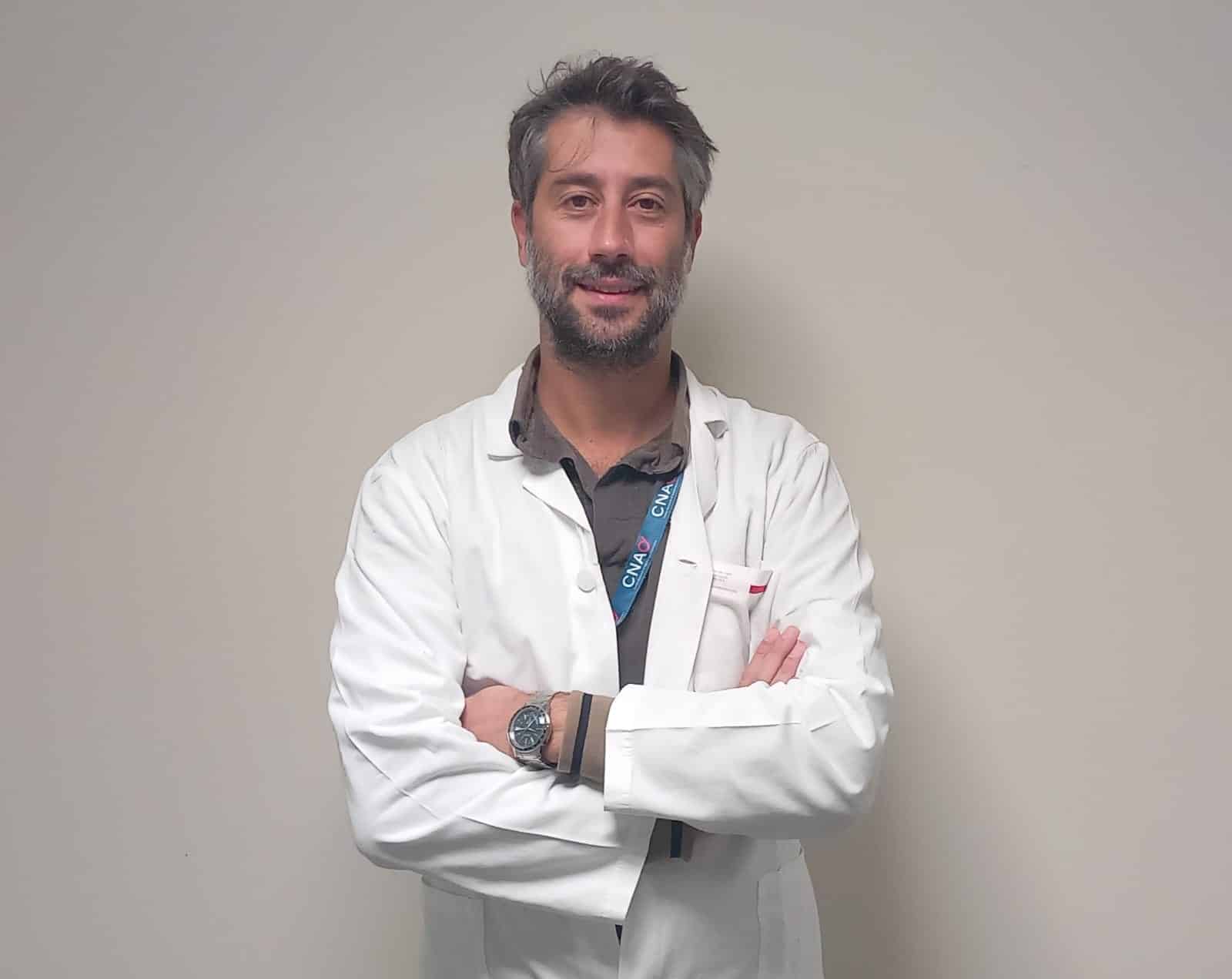
Andrea Pella
Centro Nazionale di Adroterapia Oncologica
Andrea Pella received his Doctoral degree in Bioengineering from Politecnico di Milano University in 2012, discussing a thesis titled ‘Technologies and methods for treatment geometry optimization in radiation therapy with accelerated particles’. All the experimental activities were carried out between Italy (Centro Nazionale di Adroterapia Oncologica, CNAO) and Germany (GSI Helmholtzzentrum für Schwerionenforschung, GSI). After two years of Post-Doc, he formally joined the Bioengineering Division of CNAO. The core of his research activity is focused on new technologies aimed at patient positioning and image guided setup verification in particle therapy, with particular attention to organ motion mitigation strategies.
- Co-supervisors: Mario Ciocca
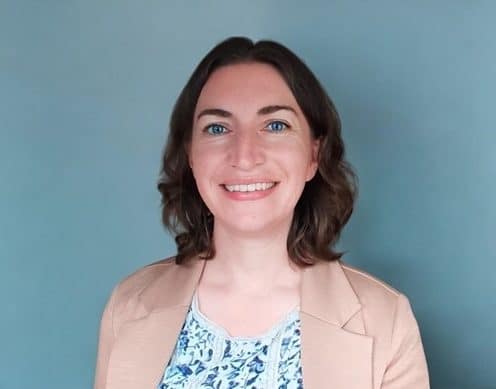
Tracy Underwood
Leo Cancer Care
Dr Tracy Underwood is Head of Translational Research at Leo Cancer Care. She is also a UKRI Future Leaders Fellow and an Honorary Senior Research Fellow at University College London. Previously, as a radiotherapy researcher she worked at some of the most innovative clinics and academic departments worldwide, including Massachusetts General Hospital / Harvard Medical School in Boston, IUCT Oncopole in Toulouse, the Christie NHS Foundation Trust, the University of Manchester, and the University of Oxford. Together with her collaborators she is currently researching many aspects of upright radiotherapy, including: immobilisation methods, patient perspectives, anatomical changes with body position and treatment planning.She likes to spend her free time on the beach or in the forest with her husband and two young kids.
- Co-supervisors: Michael Fray, Heidi Probst
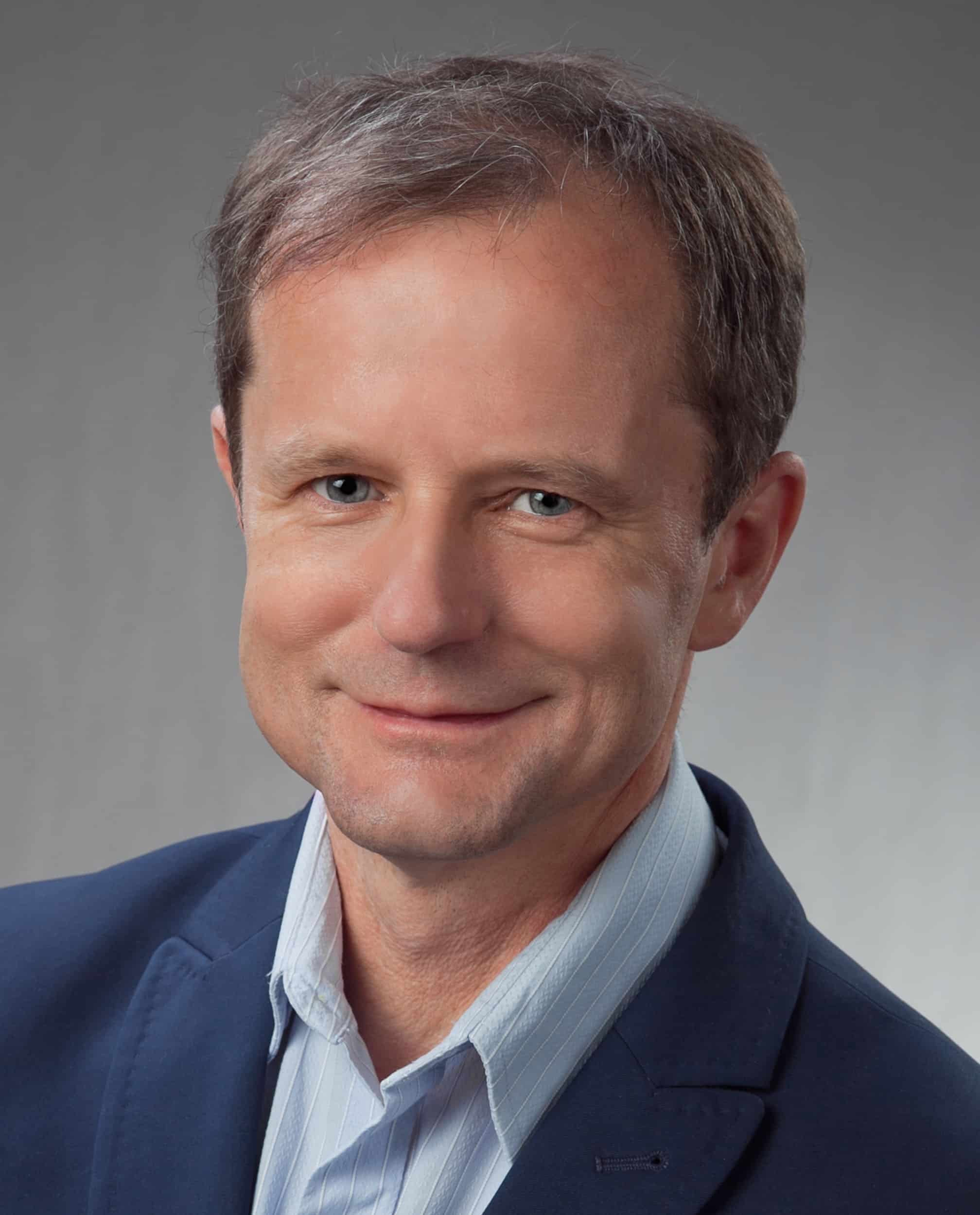
Pawel Moskall
Uniwersytet Jagielloński
Pawel Moskal, Ph.D. is an inventor of cost-effective positron emission tomography based on plastic scintillators and an inventor of the method of positronium imaging. He conceived and headed a medical experiment demonstrating the first positronium images of the human brain in vivo. He also conceived and headed physics experiments achieving best-to-date precision in studies of discrete symmetries in decays of positronium atoms, and demonstrated non-maximal entanglement of photons from the annihilation of positronium in the matter. He is a professor of physics and the head of the Cluster of Nuclear Physics Departments at the Jagiellonian University in Cracow, Poland. Prof. Moskal has supervised 33 completed Ph.D. theses, has co-authored 42 patents in Europe, USA, and Japan, and more than 450 scientific articles in the field of nuclear and particle physics and positron emission tomography. In the years 2015-2017, he was a member of the SPSC Scientific Committee at CERN. Since 2020 he has been a Member of the Committee on Medical Physics, Radiobiology, and X-Ray Imaging, at the Polish Academy of Sciences. Prof. Moskal has formed and is leading the J-PET collaboration: an interdisciplinary research team at the Jagiellonian University conducting research and development of a new imaging device based on plastic scintillators with applications including multi-photon imaging, positronium imaging, simultaneous double tracer imaging, and quantum entanglement enhanced tomography. Presently prof. Moskal is leading the construction of the low-cost total-body PET scanner from plastic scintillators.